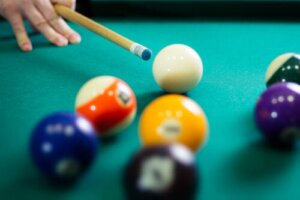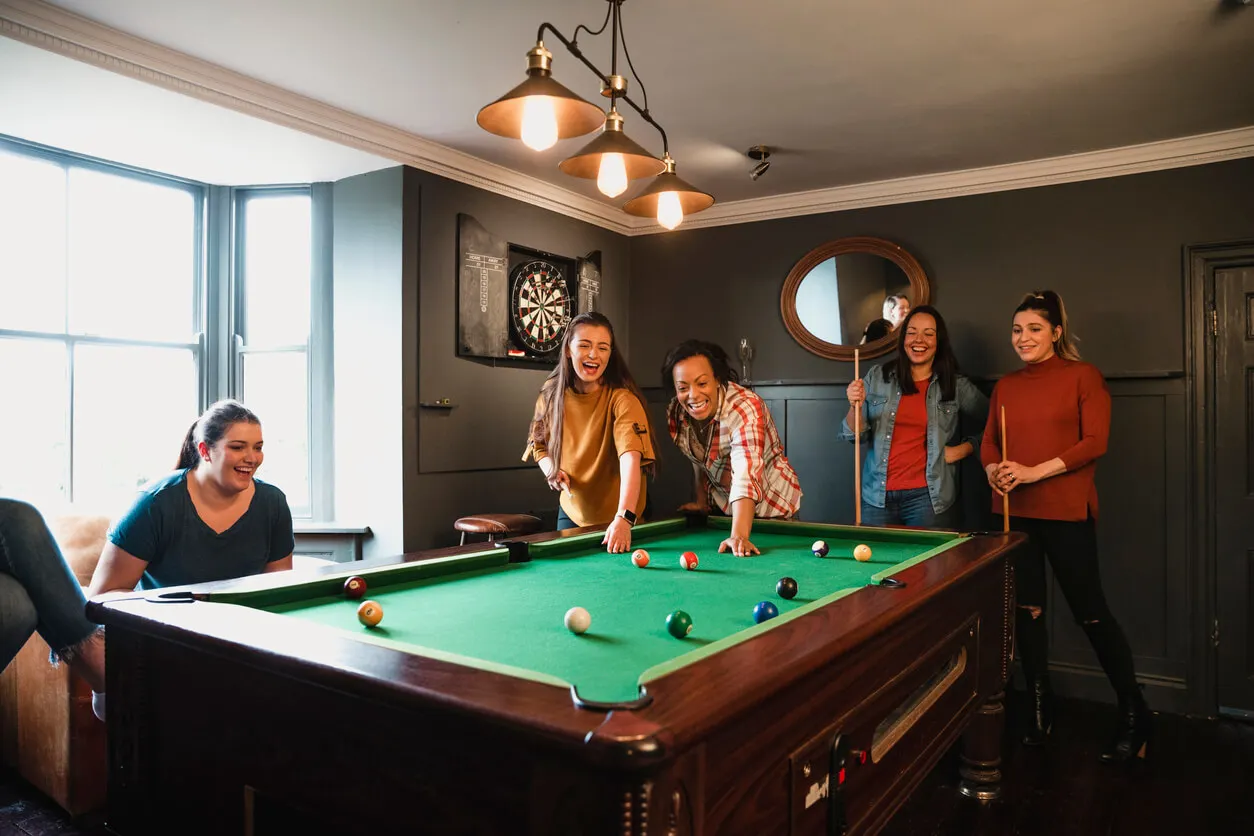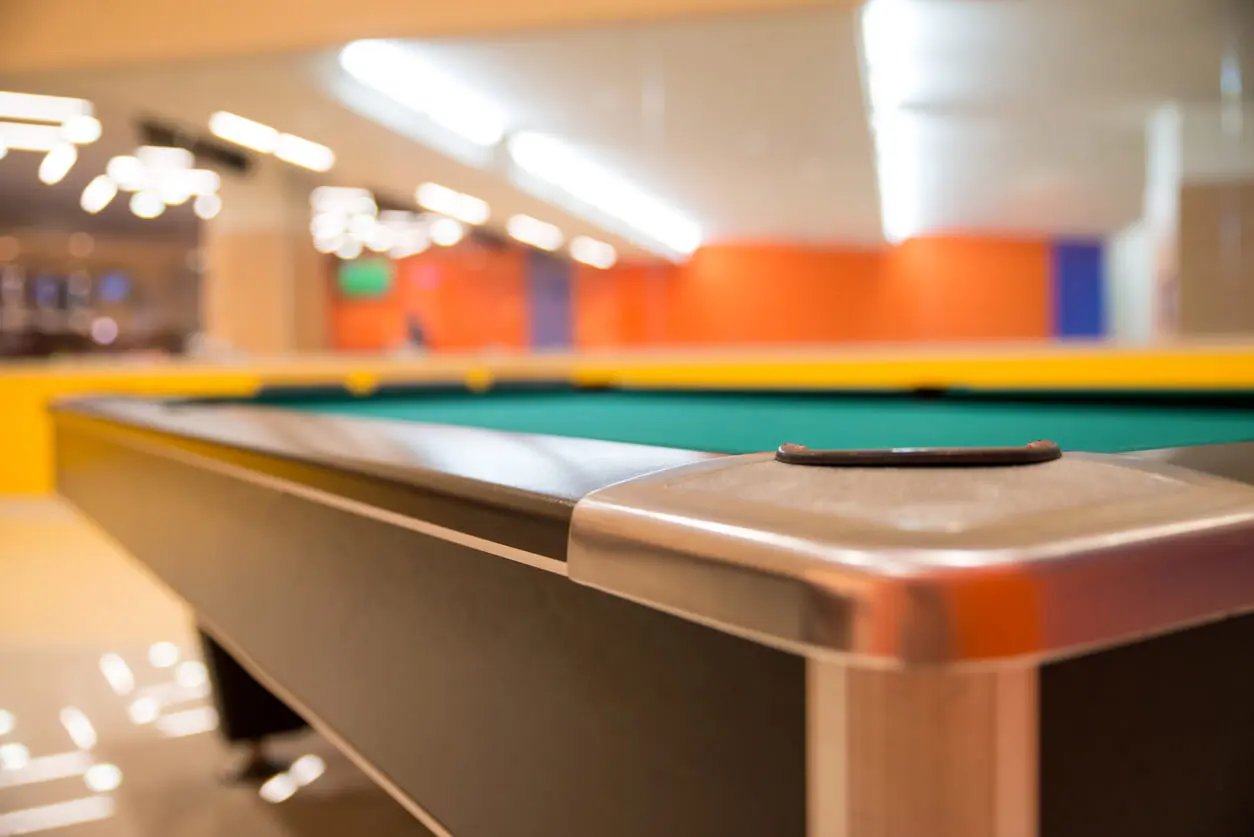5 Tips for Cleaning a Pool or Billiards Table

Billiards is a high-precision sport that requires skill and knowledge to play, as well as a series of implements that must have certain characteristics. It’s played by hitting a variable number of ivory balls on a table with a wooden cue. In this article, we’ll give you tips on how to clean your pool or billiards table to keep it in excellent condition.
The origins of billiards are found in the cultures of Greece and Egypt, according to certain sources. However, there are different versions about its origin and the manufacture of the first billiards table.
In France, they claim that the game was created under the court of Louis XII, by a man named Henry Devigne. This isn’t the only theory though.
Regardless of its origin, the truth is that it’s a game that has become popular in many parts of the world. In fact, you can find people who play it professionally and participate in tournaments.
The best tips to clean your pool or billiards table
When we invest money in a pool or billiards table, we know that it’s a long-term investment, because it certainly isn’t usually a cheap object to acquire or move. For this reason, we’ll always need to take special care when cleaning it; its cloth is very delicate.
Also, to ensure that the rules of the game are followed and the balls slide well, we must keep the table in shape and preserve its useful life. Here are some techniques for cleaning a billiards table.

1. Use a duster
The first thing to do is to have a duster and pass it delicately over the cloth of the table. This won’t remove the stains, but it will lift the chalk dust, which can then be vacuumed up. For this purpose, you should do it on low power, so as not to detach the cloth from the table.
Read more: How to Clean a Moldy Mattress
2. Brush the table
It’s of utmost importance to use brushes recommended by the manufacturers, which you can buy in specialized billiards stores. If you decide not to get them because of the expense, then the most important thing to keep in mind is that, in order to clean the cloth, very soft bristles are required, in order to protect the felt.
You should never brush in a circular way. Always scrub in straight, short strokes, and very gently.
3. Vacuum the table
This is a step that can be carried out If the table has a lot of dirt on it and the last two steps haven’t removed the dirt. You should vacuum the table without touching the cloth with the vacuum nozzle.
It’s always a good idea to do it quite near the cloth, but without touching or scratching it. Remember to vacuum the entire table, making sure that there’s no dust on the ends or corners.
Vacuum at medium power to avoid breaking the cloth.
4. Eliminate stains
Although you avoid drinking or eating near the pool table, if you do spill something on it or stain in, then there are several cleaning tricks to remedy the situation.
The first thing to do when there’s a spill is to clean it immediately, preventing moisture from penetrating the felt. For this purpose, use a white towel that absorbs moisture.
You can also use highly absorbent towels, the kind you usually use in the kitchen; these are usually to hand.
If stains remain after scrubbing with a brush and vacuuming from a distance, wipe the felt gently with a damp cloth. In this way, we can remove dust residues and surface marks. You’ll then need to wait about half an hour to an hour to cover the table with its protector.
Another way to clean a billiard table is to use water and vinegar in equal proportions. With this solution, you need to moisten a cleaning towel, which you must wring out very well so that it isn’t soaked. Otherwise, you’ll spoil the felt.
You should then clean it with a towel in a straight line and in short strokes, always very gently. Vinegar helps to clean effectively and is a mild product compared to the chemicals on the market.
You can also buy a specialized shampoo to clean pool tables. In either case, after wetting the table it’s necessary to wait about an hour before covering it.

5. Special treatment for difficult stains
To remove difficult stains, and after having tried with a damp cloth or water and vinegar, it’s necessary to use a specialized product for billiard tables. They’re sold for this purpose and are usually found in sporting goods stores.
However, it’s important not to use carpet or furniture shampoos, as they may ruin the cloth. Follow the instructions of the specialized product.
If the stain persists after applying it, we recommend you ask your billiards table manufacturer or dealer for help, as they’ll be able to give you more detailed instructions about how to clean your table.
Read more here: What Are Hard Water Stains and How to Remove Them
Take care of your pool table
Now that you know how to clean a pool or billiards table, we’d like to give you some last recommendations to keep it clean:
- Always apply the chalk on the cue away from the table surface. This technique helps to prevent a lot of dust accumulation on the surface of the cloth.
- Clean the billiard balls by gently wiping them with a microfiber cloth. This will keep your table cleaner for longer.
- Keep all billiard equipment off the table and never wipe the elements on the surface of the cloth.
- The wooden parts of the table can be cleaned with a vinegar and water solution, which adds shine.
Don’t forget to keep your pool table covered and protected, according to the manufacturer’s instructions. This is especially important if it’s in an area close to the outdoors.
All cited sources were thoroughly reviewed by our team to ensure their quality, reliability, currency, and validity. The bibliography of this article was considered reliable and of academic or scientific accuracy.
- Mendaña, P. (2010). El juego del billar. Museodeljuego.org. http://museodeljuego.org/wp-content/uploads/contenidos_0000000745_docu1.pdf
This text is provided for informational purposes only and does not replace consultation with a professional. If in doubt, consult your specialist.








